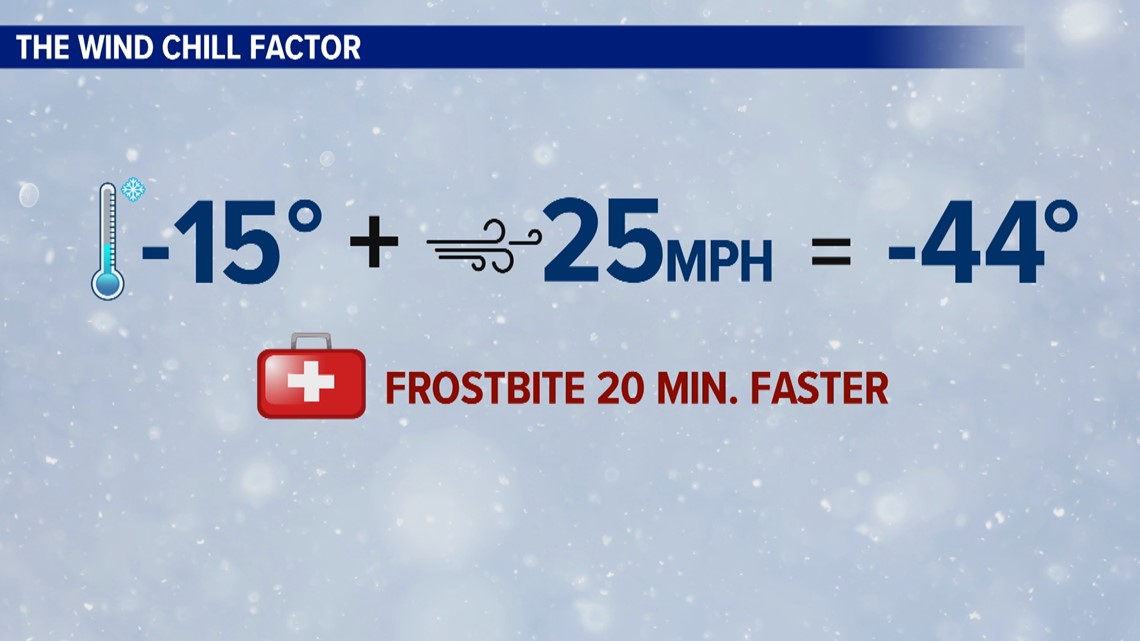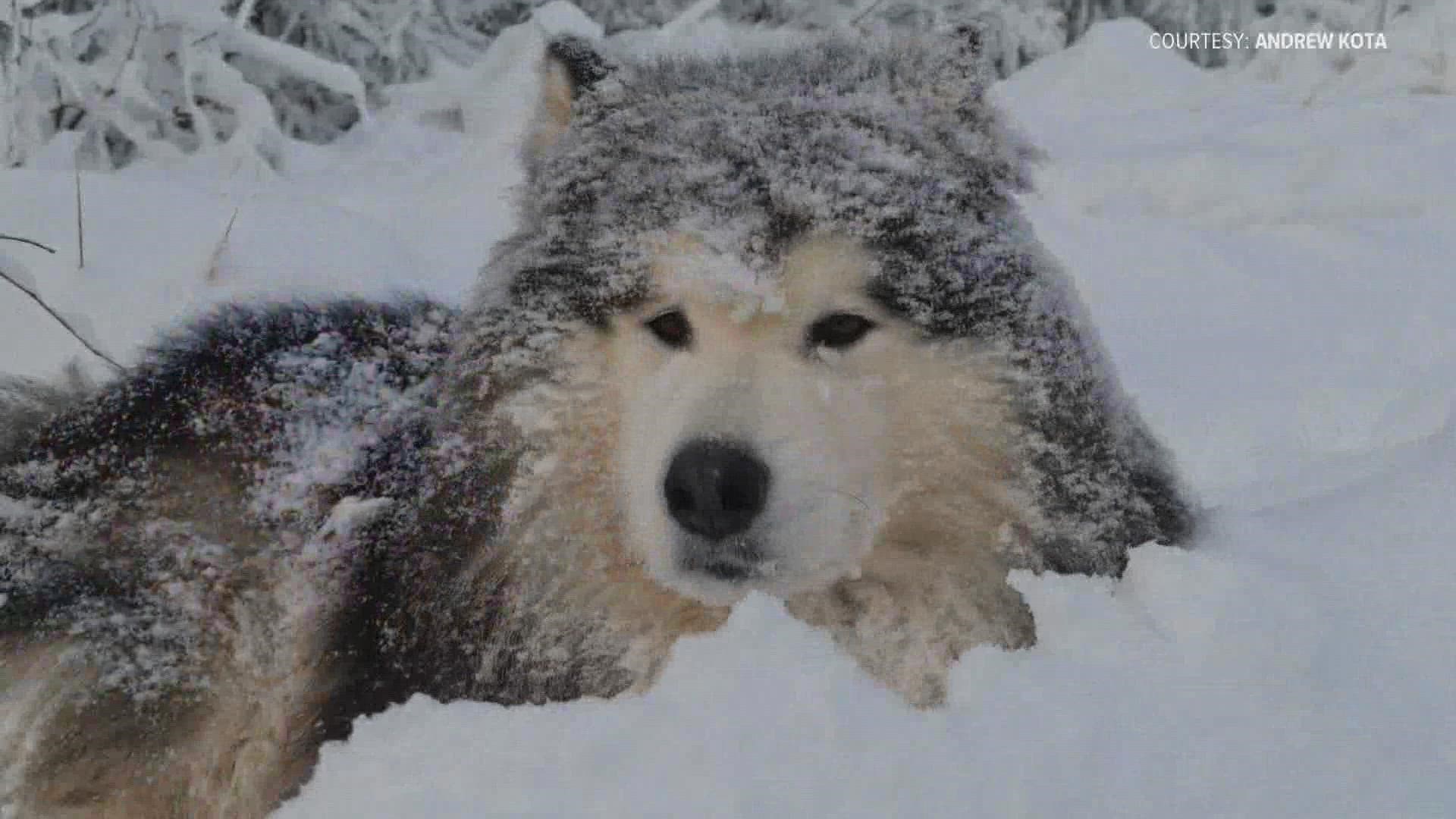FORT COLLINS, Colo. — The frigid arctic cold coming to Colorado will drop most of our temperatures into the negatives before midnight on Wednesday, and the wind will amplify the impact of that cold.
It’s called the windchill factor. You’ll sometimes hear it called “feels-like” temperature, but it’s not a feeling -- It’s an actual measure of how much faster the wind causes your body temperature to drop.
For example, let’s say it drops to -15 degrees. Add a 25 mph wind, and that amplifies the impact of that -15 degree temperature to be equivalent to -44 degrees.
That means you can get frostbite 20 minutes faster than if there was not wind.


That math is for humans, but animals are also impacted by windchill because the wind can physically remove heat from their bodies, despite their furry coats.
“Use your common sense rather than just live off of a temperature scale," said Ragan Adams, the extension specialist with the Colorado State University Veterinary Medical School. "You need to use your common sense and know about your animal and what’s going on outside.”
She said the impacts of windchill, and cold temperatures in general, depend on the size, age and health of the animal.
For house pets, she starts to get concerned when the temperature drops into the teens. She said pets should spend most of their time indoors during this coming storm, but she also said not to deprive pets that enjoy the snow and cold from their walks and playtime.
“A young active dog might think an hour in the backyard is the best thing in the world on a cold snowy day," Adams said. "But an older dog you should be more careful with. And the same goes for cats.”
She said pets are very communicative. They will let you know that they are uncomfortable or cold in any way. She said they will shiver and shake, lift their paws up off the ground one at a time, whimper or try to get inside.
And when you bring your pets in after a walk out in the cold, Adams said to wipe their feet off thoroughly, because deicers used on sidewalks and streets can give them chemical burns.
Adams said she’s less concerned with the magnitude of this storm than she is with the timing during the busy holiday season.
“You’re thinking about all the things you need to do for the holidays, but don’t forget the responsible care of your animals during this cold," she said.
Livestock
Adams said most livestock, like horses, cows and sheep, are very cold tolerant, especially if they are acclimated to Colorado, but even they need some help from their human owners.
"They need shelter to stay dry and protect them from the wind," she said. "And they eat to stay warm. Make sure they have plenty of food and their water source doesn't get frozen."
She said the same things apply to livestock as pets in cold weather. The impacts will vary depending on the age, size and health of the animal.
She said chickens are a little less cold tolerant and need more help than the bigger animals. Poultry needs to be kept in their coop when the temperatures drop into the teens.
That takes some forethought, she said, before the winter season comes, because you have to make sure the coop is sealed and insulated properly.
She also said that many livestock owners will take extra precautions by bringing heating lamps or space heaters into barns and chicken coops.
"That might be a little more trouble than they're worth," Adams said. "If you do something like that, be extra cautious because fires are actually more common than you might think."
SUGGESTED VIDEOS: Animals and Wildlife

